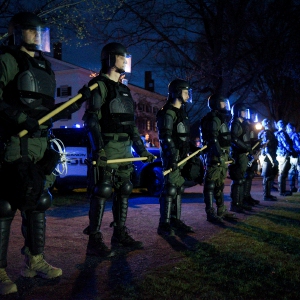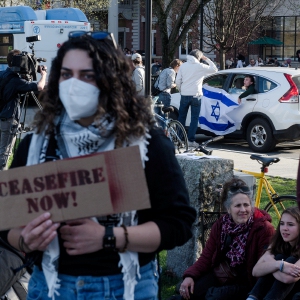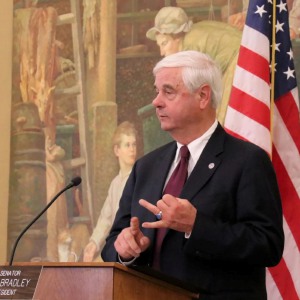Hospitals: State needs to do more for patients
| Published: 01-29-2023 8:28 PM |
In 2017, a group of leading New Hampshire lawmakers toured the emergency room at Concord Hospital at the invitation of the hospital president and were shocked at the conditions they found there: mental health patients, some in distress, held against their will in beds that overflowed into the hospital hallways because there was no room for them at the state psychiatric hospital.
The problem attracted intense legislative scrutiny. In the years since, bills have been passed and funds appropriated to expand the availability of psychiatric beds, but the shortage persists. Courts have ruled that individuals who protest their hospitalization have a right to effective due process and timely transfer to the state hospital or something equivalent.
But hearings are still held by telephone from emergency room beds, and the state hospital (New Hampshire Hospital in Concord) has lost capacity instead of gaining it.
So, it’s back to the courts.
On Jan. 10, a group of 15 New Hampshire hospitals filed a motion for summary judgment against the commissioner of Health and Human Services. The hospitals named as plaintiffs in the motion are Alice Peck Day Memorial Hospital, Cheshire Medical Center, Concord Hospital, Cottage Hospital, HCA Health Services of New Hampshire (Frisbie Memorial Hospital, Parkland Medical Center and Portsmouth Regional Hospital), Huggins Hospital, Littleton Hospital Association (Littleton Regional Healthcare), Mary Hitchcock Memorial Hospital, Monadnock Community Hospital, New London Hospital, Speare Memorial Hospital, St. Joseph Hospital and Valley Regional Hospital.
The motion claims the Department of Health and Human Services continues to dodge its responsibilities to mental health patients facing involuntary commitment for psychiatric care.
The president and CEO of Cheshire Medical Center, Dr. Don Caruso, helped set the most recent lawsuit in motion during his tenure as chairman of the board at the N.H. Hospital Association in 2022. He says the hope is that a judge will levy daily fines on the state to force it to do what the courts have already ordered it to do.
“There have to be some fines,” he said, “and they have to be substantial enough that the state will decide it costs more money to pay the fines than to hire the necessary staff.”
Article continues after...
Yesterday's Most Read Articles
 Killington is the East’s largest ski resort. A developer wants to expand on that in a big way.
Killington is the East’s largest ski resort. A developer wants to expand on that in a big way.
 Kenyon: Dartmouth shows it has no patience for peaceful protest
Kenyon: Dartmouth shows it has no patience for peaceful protest
 Claremont movie theater to close at end of May
Claremont movie theater to close at end of May
 A Look Back: Upper Valley dining scene changes with the times
A Look Back: Upper Valley dining scene changes with the times
 Lebanon High senior comes to the aid of driver with health problem
Lebanon High senior comes to the aid of driver with health problem
 Dartmouth moves swiftly to stymie demonstration, leads to 90 arrests
Dartmouth moves swiftly to stymie demonstration, leads to 90 arrests
Monadnock Community Hospital in Peterborough, N.H., is also listed as one of the plaintiffs, but Alycia McDuff, marketing and communications manager, declined to comment. Jake Leon, spokesman for the Department of Health and Human Services, also declined to comment, deferring to the department’s legal response.
The case is filed in Merrimack County Superior Court. In its response, the state claims it would be “inhumane” to transfer the patients from emergency rooms around the state to the understaffed state hospital which has no beds for them, and that the hospitals must also accept their role in the involuntary admission process.
“It is inhumane and would be manifestly contrary to (state and federal law) to force the transfer of involuntary admission patients who have been deemed a danger to themselves and others from a stable and safe healthcare environment where they can receive baseline mental health treatment (the hospital emergency department) to an environment that lacks the capacity to care for and treat the patient,” states the response to the hospitals’ lawsuit filed by the Attorney General’s Office on Jan. 17.
“The hospitals do not have a right under state law to eject from their emergency departments persons suffering from mental health emergencies and demand state facilities to care for them,” according to the state’s response. “The provision of mental health care is not a purely public function, and the privilege of being a licensed hospital in New Hampshire carries with it the obligation to care for and treat persons suffering from mental health emergencies in a safe and humane way.”
In other words, the state’s response to the hospitals tells them to deal with it.
That outrages Caruso and others who argue the state is downshifting its responsibilities to the local hospitals due to an unwillingness to spend the money needed to solve the problem at the state level.
“That’s exactly what they are doing,” Caruso said in an interview. “That is what this has been about all along. Shifting the expense to someone else.”
Caruso said his hospital and others are willing and capable of treating voluntary mental health patients and do so on a regular basis. Cheshire Medical Center in Keene, N.H., has four beds designated for that purpose, and psychiatric nurses with access to a psychiatrist. But for the state to suggest that involuntary patients can receive “baseline mental health treatment” at the local hospitals flies in the face of reality, according to Caruso.
“We can’t give them medical intervention because we would be doing it against their will,” he said. “We don’t have that authority; only the state does.”
The problem has persisted for at least a decade. Ten years ago, the state began keeping track of involuntary patients being boarded in hospital emergency rooms with a daily report of available emergency psychiatric beds in New Hampshire.
On Jan. 19, 43 adults and 12 children were being held in emergency rooms or correctional facilities awaiting a bed at New Hampshire Hospital, according to that date’s report.
Yet on the same date, 31 of New Hampshire Hospital’s 184 beds were closed due to staffing shortages. Then-DHHS Commissioner Lori Shibinette told the Executive Council in September that’s partly due to the department’s inability to compete with wages and $10,000 sign-on bonuses offered by other hospitals.
“The state can do what the rest of us are doing,” Caruso said, and “pay the premium rates for traveling nurses so they can fill those beds. They have a unit that is not open because they don’t have staff. Many of us have the same problem, but we are paying premium rates for traveling nurses and losing money, but we are doing it. I don’t see why the state isn’t doing that.”
According to Caruso, the state has shown over the years that when it comes to mental health services, it responds only to budgeting by lawsuit.
“In my mind, the court is the only mechanism to move the state,” he said. “The state is not going to follow the requirement that it care for these individuals without the court’s intervention. There have to be some fines. And the fines have to be substantial enough that the state will be moved to hire the necessary staff instead.”
The alternative, he said, is continued boarding of involuntary mental health patients in hospitals throughout the state, most of which are not equipped for the purpose.
“It puts our patients and our staff at risk,” Caruso said. “We get lots of complaints from patients in the emergency room because there are mental health patients there who are very agitated. They don’t feel safe even in private rooms.”
The threats to staff have also grown more severe as the crowding worsens, he noted. “It’s been getting worse over the past three to four years. Six months ago, we had a patient dispense an entire fire extinguisher in the emergency room, spraying everything and everyone. It took a day to clean it up,” Caruso said. “We’ve had many instances where staff are hurt one way or the other. We had a nurse get punched in the face.”
And there’s the increased costs associated with involuntary admissions.
The state put a program in place 18 months ago that was intended to reimburse hospitals for the care of IEA (involuntary emergency admission) patients, involving Medicaid and private insurers.
“We still have not seen any reimbursement,” Caruso said. “We keep asking and they keep saying, ‘We don’t have any money to pay.’ ”
These articles are being shared by partners in The Granite State News Collaborative. For more information visit collaborativenh.org.

 Hartford Selectboard considers banner policy amid controversy over ‘Hometown Heroes’ project
Hartford Selectboard considers banner policy amid controversy over ‘Hometown Heroes’ project NH Senate President Jeb Bradley to retire after a 32-year career in politics
NH Senate President Jeb Bradley to retire after a 32-year career in politics
